Turkey’s Strategic Positioning Amidst the Rising Tension With the United States
Turkey’s Strategic Positioning Amidst the Rising Tension With the United States
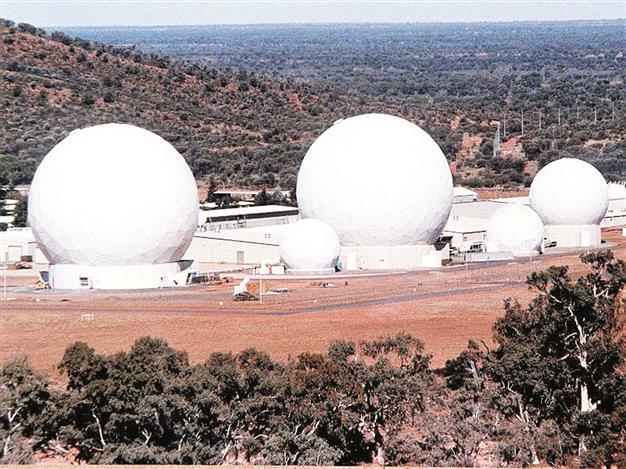 Turkey, a NATO member since 1952, has been contributing to Alliance in peacekeeping missions in Afghanistan, Kosovo, Somalia and Bosnia-Herzegovina. Similarly, the missile radar site in Kürecik/Malatya is active since 2012 while İncirlik/Adana and Konya air bases have been provided to foreign troops during NATO operations. Being the seventh biggest contributor country in terms of troop contributions to NATO, Turkey has been an important member of the organization. However, there is recently an erratic pattern in the course of Turkey – NATO relations largely due to; recently aroused problems with the USA as well as due to the rapprochement between Turkey and Russia mostly on the basis of Syrian conflict and some strategic defense industry matters. The most prominent of them is the agreement made by Turkey and Russia for the procurement of S-400 Russian Air Defense systems by Turkey. Although NATO Secretary General Jens Stoltenberg stated on March 2017 that member countries would augment Turkish air defense capabilities[1], obscure nature of such statements is referred by Turkey as the reason of for Turkey’s looking for alternative solutions. Turkey sees the issue as a discrepancy between the security perceptions of NATO and herself.
Turkey, a NATO member since 1952, has been contributing to Alliance in peacekeeping missions in Afghanistan, Kosovo, Somalia and Bosnia-Herzegovina. Similarly, the missile radar site in Kürecik/Malatya is active since 2012 while İncirlik/Adana and Konya air bases have been provided to foreign troops during NATO operations. Being the seventh biggest contributor country in terms of troop contributions to NATO, Turkey has been an important member of the organization. However, there is recently an erratic pattern in the course of Turkey – NATO relations largely due to; recently aroused problems with the USA as well as due to the rapprochement between Turkey and Russia mostly on the basis of Syrian conflict and some strategic defense industry matters. The most prominent of them is the agreement made by Turkey and Russia for the procurement of S-400 Russian Air Defense systems by Turkey. Although NATO Secretary General Jens Stoltenberg stated on March 2017 that member countries would augment Turkish air defense capabilities[1], obscure nature of such statements is referred by Turkey as the reason of for Turkey’s looking for alternative solutions. Turkey sees the issue as a discrepancy between the security perceptions of NATO and herself.
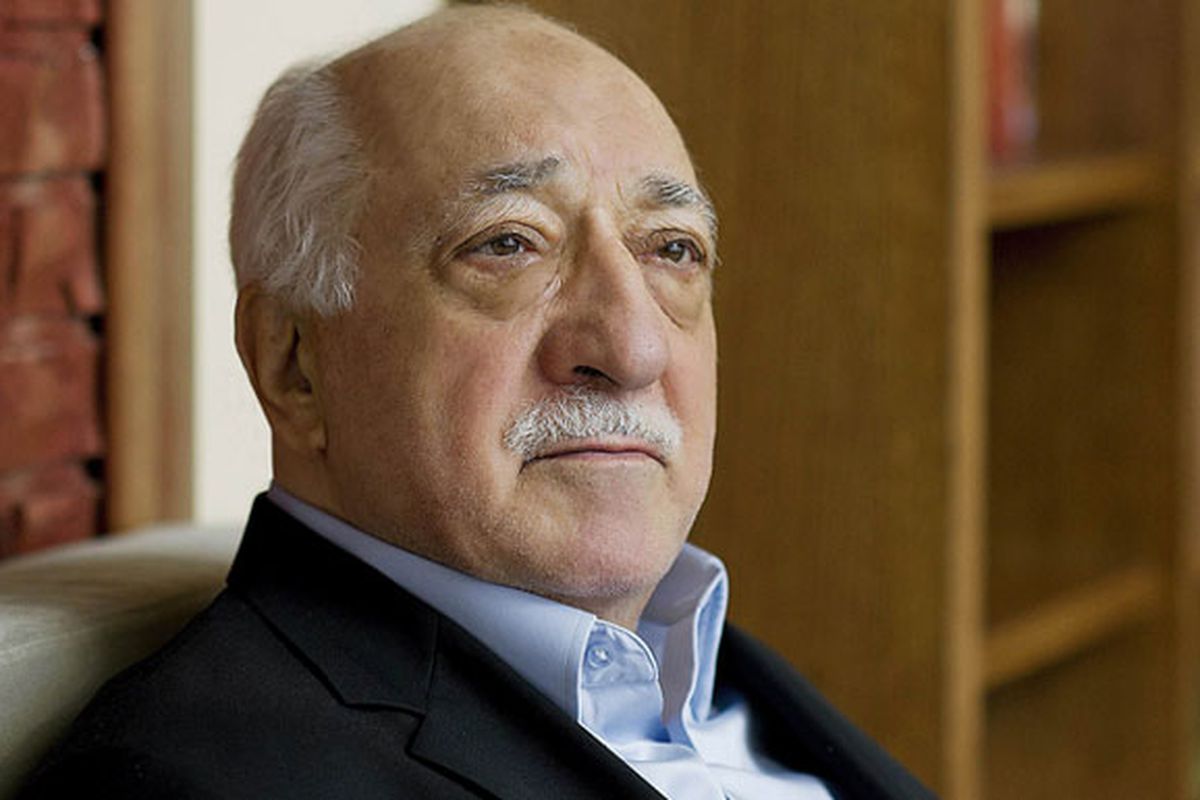 One of the key determinants of Turkey-NATO relations is those of Turkey and the United States (US), which is the biggest contributor of the organization compensating almost 70 percent of the NATO expenditures. Recently, the bilateral relations between Turkey and US have deteriorated to an unprecedented extent, causing imposition of unilateral sanctions from the US to Turkey. The initial phase of the deterioration is US’s unwillingness to extradite Fethullah Gülen, head of the Gulenist Terror organization which is the main responsible of 2016 failed coup d’état attempt in Turkey. Turkey, right after the failed coup attempt, immediately delivered the evidences on Fethullah Gülen to the US Justice Department and had raised the issue by bilateral talks although achieving no result. The issue of Fethullah Gülen remains to be one of top problems between two states.
One of the key determinants of Turkey-NATO relations is those of Turkey and the United States (US), which is the biggest contributor of the organization compensating almost 70 percent of the NATO expenditures. Recently, the bilateral relations between Turkey and US have deteriorated to an unprecedented extent, causing imposition of unilateral sanctions from the US to Turkey. The initial phase of the deterioration is US’s unwillingness to extradite Fethullah Gülen, head of the Gulenist Terror organization which is the main responsible of 2016 failed coup d’état attempt in Turkey. Turkey, right after the failed coup attempt, immediately delivered the evidences on Fethullah Gülen to the US Justice Department and had raised the issue by bilateral talks although achieving no result. The issue of Fethullah Gülen remains to be one of top problems between two states.
In 2017, the clashing positionings of two states during the Qatar crisis also contributed to the existing tensions among them. Saudi Arabia, United Arab Emirates, Bahrain, the Maldives, and Bahrain together with Egypt cut off their diplomatic relations with Qatar, accusing the country of supporting terrorism. It was Turkey and then Iran who sided with Qatar and sending basic supplies to the country. Turkey has already invested around $20 billion and established a military base in this country accommodating 3.000 troops, which was also demanded to be removed by the Saudi-led group to end the crisis[2]. This crisis not only worsened the the relations between Qatar and other Gulf countries but also escalated the discrepancies between Turkey and the US, eventually , further pushing Turkey to Iran despite the clashing long-term strategic goals of each other. At the same time, Turkey strengthened its relations with Qatar, sharing parallel policies regarding the Syrian Civil War and the domestic situation in Egypt. This meant the formation of a new political axis among Turkey-Qatar and Iran extending beyond the economic goals of each of them.
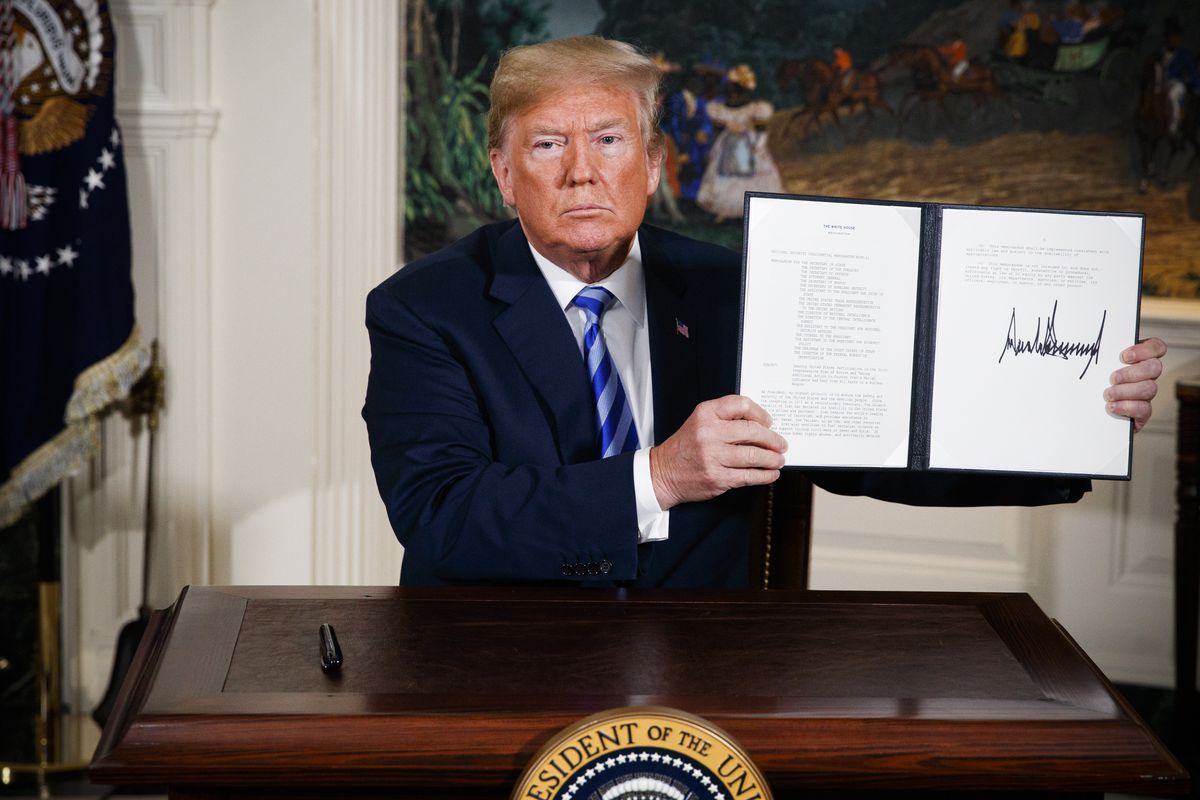 The nuclear deal with Iran (whose presence in Syria is also not welcomed) is as well another matter of concern for US foreign policy having adverse effects on Turkey also. On May 2018, US President Trump withdrew from the Iran nuclear deal, signaling further economic sanctions to be the heaviest ever. Reimposition of sanctions marked the beginning of a new-born peace agreements, juxtaposing nuclear deal with the threat to international security. Trump imposed sanctions on Iran on August 2018, urging other countries to follow up. President Erdoğan refused cut off ties with Iran naming sanctions as “not appropriate”. Considering that Trump era US policy prioritizes blocking the expansionism of Iran in the Middle East (Syria, Yemen, Iraq), withdrawal from nuclear deal serves as a wider and more significant purpose. As such, the US policy in Syria has been built on protecting Israel against Iran. However, Iran is one of the guarantors of the Astana Process and a country whose militias are one of the biggest supporter of the Assad regime in Damascus. Turkey, by being another guarantor state in Astana, backing up opposition groups, has now involved in more productive bilateral relations with Iran although the parties they have backed in the field are different. Therefore, though not being evolved into a strategic partnership, close ties between two countries raised concerns in the US side on the dependence of Turkey as a long-term strategic partner in the Middle East.
The nuclear deal with Iran (whose presence in Syria is also not welcomed) is as well another matter of concern for US foreign policy having adverse effects on Turkey also. On May 2018, US President Trump withdrew from the Iran nuclear deal, signaling further economic sanctions to be the heaviest ever. Reimposition of sanctions marked the beginning of a new-born peace agreements, juxtaposing nuclear deal with the threat to international security. Trump imposed sanctions on Iran on August 2018, urging other countries to follow up. President Erdoğan refused cut off ties with Iran naming sanctions as “not appropriate”. Considering that Trump era US policy prioritizes blocking the expansionism of Iran in the Middle East (Syria, Yemen, Iraq), withdrawal from nuclear deal serves as a wider and more significant purpose. As such, the US policy in Syria has been built on protecting Israel against Iran. However, Iran is one of the guarantors of the Astana Process and a country whose militias are one of the biggest supporter of the Assad regime in Damascus. Turkey, by being another guarantor state in Astana, backing up opposition groups, has now involved in more productive bilateral relations with Iran although the parties they have backed in the field are different. Therefore, though not being evolved into a strategic partnership, close ties between two countries raised concerns in the US side on the dependence of Turkey as a long-term strategic partner in the Middle East.
The US policy to support PYD (Democratic Union Party), Syrian branch of the PKK terrorist organization militarily and financially is another reason putting Turkey and US apart in Syria. Despite the promise of President Trump in late September 2017 to President Erdoğan not to deliver weapons to PYD, the continuation of this support[3] increased the tensions among the parties. The presence of PYD terrorists along the borders of Turkey is a direct threat to the national security. Thus, Turkey expects the US authorities to understand and support Turkey’s military operations to protect its borders as a NATO member.
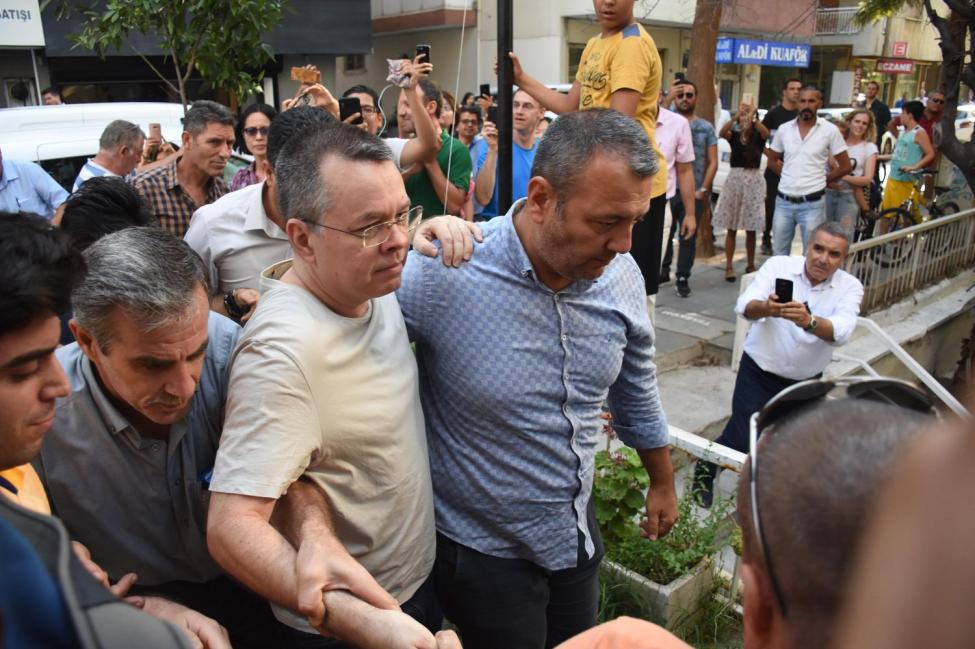 The most recent problem occurred between the US and Turkey is the trial of Pastor Andrew Brunson who was allegedly involved in the 2016 failed coup d’état attempt. Brunson’s legal status was changed from jail imprisonment to to house arrest on July 2018. However, President Trump threatened Turkey and demanded an immediate release of the pastor. In the ensuing days, US imposed financial sanctions to two Turkish Ministers and hiked tariffs on steel and aluminum, weakening the Turkish Lira against US dollar. In addition to that, President Trump signed a defense bill including the halting of the F-35 Joint Strike Fighter Jet delivery to Turkey. Turkey does not recognize this decision putting forth that it has already been a member of the international F 35 consortium since 1999 investing more than $1 billion. Although the escalation of conflict on pastor Brunson is discussed as a reason causing the blocking of F-35 deliveries, the background of it lies within Turkey’s purchasing of S-400 surface-to-air missile system from Russia. Turkey signed a deal with Russia to buy its anti-aircraft missile system on September 2017 estimated to cost around $2-2.5 billion[4]. It is asserted that the low frequency search and acquisition radars that S-400 missile systems use can track and detect fighters like F-35. Although Turkish officials have tried to guarantee that S-400 missile system will not be a threat to the NATO’s security architecture, this has not prevented the US from halting F-35 delivery, deteriorating relations even more.
The most recent problem occurred between the US and Turkey is the trial of Pastor Andrew Brunson who was allegedly involved in the 2016 failed coup d’état attempt. Brunson’s legal status was changed from jail imprisonment to to house arrest on July 2018. However, President Trump threatened Turkey and demanded an immediate release of the pastor. In the ensuing days, US imposed financial sanctions to two Turkish Ministers and hiked tariffs on steel and aluminum, weakening the Turkish Lira against US dollar. In addition to that, President Trump signed a defense bill including the halting of the F-35 Joint Strike Fighter Jet delivery to Turkey. Turkey does not recognize this decision putting forth that it has already been a member of the international F 35 consortium since 1999 investing more than $1 billion. Although the escalation of conflict on pastor Brunson is discussed as a reason causing the blocking of F-35 deliveries, the background of it lies within Turkey’s purchasing of S-400 surface-to-air missile system from Russia. Turkey signed a deal with Russia to buy its anti-aircraft missile system on September 2017 estimated to cost around $2-2.5 billion[4]. It is asserted that the low frequency search and acquisition radars that S-400 missile systems use can track and detect fighters like F-35. Although Turkish officials have tried to guarantee that S-400 missile system will not be a threat to the NATO’s security architecture, this has not prevented the US from halting F-35 delivery, deteriorating relations even more.
Turkey, on the other hand, has improved bilateral ties with Russia and China. Turkish firm BOTAŞ has signed an agreement with Gazprom (Russian state gas industry company) on the construction of a gas pipeline, TurkStream on May 2018 while the Akkuyu Nuclear Power Plant of Turkey is built by the Russian Rosatom (State Nuclear Energy Corporation).
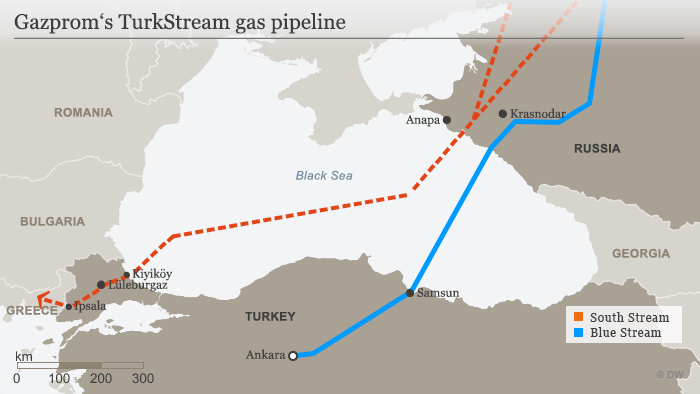
Two states have also developed close ties in the Astana Process to end the war and promote peace in Syria although possible confrontation in Idlib province where Turkish-backed militias are present, is at the table. Th e volume of the trade has also been increasing with agreements signed in the course of the evplving relations between two countries. Turkey’s recent attempts to improve its strategic cooperation with China, which is evident with the increase in the number of partnership agreements between Turkish and Chinese companies, is also remarkable.
Based on the issues mentioned above, it is clear that Turkey is in a position to seek alternative cooperation channels in line with its multidimensional foreign policy concept. Yet, this does not necessarily refer that Turkey may be further aparted from the NATO alliance. Turkish grand strategy has lied within the Western world since the end of the World War II. Its institutions, laws, regulations and even the norms have been shaped in parallel with the Western principles. Therefore, DRK considers that it is important to make realistic analysis as to provide the projections of recent political developments on the shaping security strategy of Turkey. To do so, here are some policy suggestions in relation to the strategic positioning of Turkey amidst above-given problems:
- Turkey needs to use backchannel diplomacy to ease the tension with US. The interests of the US in Syria are in a position to create new conflicts by adding new actors to the field. Trump’s move to transfer responsibility to Saudi Arabia in northern Syria might mean that PYD terrorist organization will be supported by an oil-rich country, enhancing their military capacity and causing huge threats to Turkey’s border security. To prevent such a scenario Turkey needs to take strategic steps to make US taking productive steps. By being a party of the Astana Process, Turkey has to use its tools to shape the future of Syria.
- The roadmap for Idlib should be prepared wisely. It is an area where the interest of Turkey and Russia might clash. While Russia seeks a unity under Assad’s authority, it is in Turkey’s interest to make Idlib controlled by rebels so that areas secured by Euphrates Shield and Olive Branch operations will be much safer. Otherwise new waves of migration may occur towards Turkey
- Bilateral relations with Iran should be maintained in a balanced manner. Traditionally, Turkey and Iran have not been a part of the common regional or international strategy. DRK asserts that Turkey’s positioning with Iran may bring forward some intricate relation sets to make Turkey stand against Iran’s regional rivals. This means that the rivalry between Saudi Arabia and Iran might have repercussions for Turkey in different conflict zones like Egypt or Syria. Although Turkey does not have sound relations with Saudi Arabia, its involvement into the Northern Syria could further damage Turkey’s interests in the area.
- The economic security may be one of the most significant pillar of Turkey’s security architecture in the current period of conflict. Thus, to reduce the current account deficit and to have lower inflation, Turkey should attract more foreign direct investment. To do so, Turkey needs to benefit from its bilateral relations more than ever. Qatar’s recent decision to invest $15 billion could just be an example.
In the lights of the recent developments, it may not be completely true to claim that there is a keen process of apparent transition in Turkish grand strategy. However, it is clear that Turkey seeks alternatives to enhance its security capacities against increasing threats beyond its borders. This process may also necessitate the further clarification of the interests and shares among the long-term strategic partners.
[1] “NATO Support to Turkey”, http://www.natolibguides.info/Turkey
[2] To see the list of demands, please visit: https://www.aljazeera.com/news/2017/06/arab-states-issue-list-demands-qatar-crisis-170623022133024.html
[3] “Pentagon seeks to invest $550M on PYD/PKK in FY2019”, http://www.worldbulletin.net/pentagon-seeks-to-invest-550m-on-pyd-pkk-in-fy2019/198789/pentagon-seeks-to-invest-550m-on-pyd-pkk-in-fy2019
[4] “Turkey signs deal to get Russian S-400 air defence missiles”, https://www.bbc.com/news/world-europe-41237812
